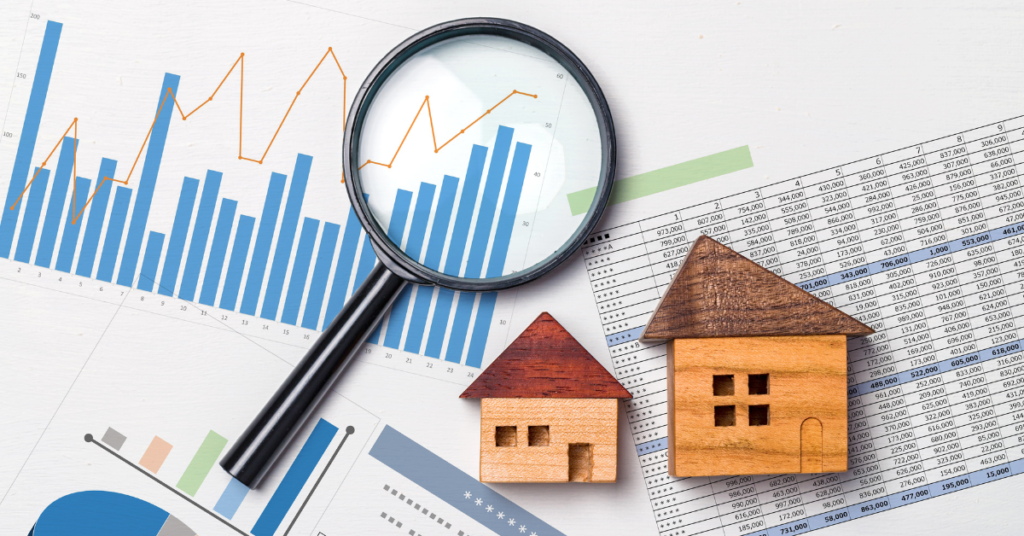Understanding Deceleration: How it Impacts Home Price Trends
Home price deceleration can impact market trends
Deceleration refers to the slowing down of a home’s price growth rate over time. It does not necessarily mean that prices are declining, but rather that the rate at which they increase is decreasing. This can have significant implications on the overall housing market and buyer behavior.
During periods of deceleration, potential buyers may be more cautious about making purchases, anticipating further decreases in price growth. As a result, demand for homes may decrease and inventory levels could rise. This shift in market dynamics could potentially lead to a slowdown in home sales activity as well.
Additionally, deceleration can affect homeowners’ equity positions. As price appreciation slows down or levels off completely, homeowners may see slower gains in their property value over time compared to previous years when prices were growing rapidly.
Overall, understanding and monitoring deceleration is crucial for both buyers and sellers alike as it provides important insights into current market conditions and future expectations.
Exploring Depreciation: Its Influence on the Housing Market
Depreciation refers to the decline in value of a property over time, and it can have a significant impact on the housing market. When a property depreciates, its overall worth decreases, making it less desirable for potential buyers. This can lead to a decrease in demand for houses in that area, ultimately causing home prices to drop.
There are several factors that can contribute to depreciation. One major factor is physical deterioration, which occurs when a property experiences wear and tear over time. This could include things like aging plumbing systems or outdated appliances. Another factor is functional obsolescence, which happens when the design or layout of a property becomes outdated or no longer meets the needs of modern homeowners. Additionally, economic factors such as changes in job opportunities or an unstable local economy can also contribute to depreciation.
Overall, understanding depreciation is crucial in assessing home price trends and making informed decisions within the housing market. By monitoring signs of potential depreciation and staying aware of various contributing factors, homeowners and buyers can better navigate this aspect of real estate transactions and protect their investments.
Key Differences: Deceleration vs. Depreciation in Home Prices
When it comes to home price trends, it is essential to understand the differences between deceleration and depreciation.
- Deceleration refers to a slowing down in the rate of home price growth. It means that prices are still increasing but at a slower pace than before. This could be due to various factors such as changes in market conditions, increased inventory, or decreased buyer demand.
- Depreciation, on the other hand, indicates a decline in home prices. It means that the value of homes is decreasing over time. Depreciation can occur when there is an oversupply of properties or when economic conditions worsen significantly.
Understanding these distinctions is crucial for homeowners, buyers, and industry professionals alike as they navigate the ever-changing real estate market landscape. By recognizing whether deceleration or depreciation is occurring, stakeholders can make informed decisions about buying/selling property and predicting future trends.
Overall, while deceleration signifies a slowdown in growth rates without necessarily leading to adverse price movements, depreciation implies a decline in property values – both concepts have distinct implications for homeownership and investment strategies.
Navigating the Housing Market: Strategies for Reacting to Deceleration and Depreciation
Strategies for Reacting to Deceleration and Depreciation
When faced with a decelerating housing market, there are several strategies homeowners can employ to protect their investments:
- Stay informed: Keep a close eye on local market trends, paying attention to factors such as inventory levels, interest rates, and employment rates. This will help you make informed decisions about whether to buy or sell.
- Be patient: In a decelerating market, it may take longer to sell your home or find the perfect property that fits your needs. Don’t rush into making hasty decisions; take your time and explore all options.
- Adjust pricing strategy: When the housing market slows down, it’s crucial to be realistic about pricing expectations. Consider lowering asking prices strategically to attract potential buyers or negotiate effectively when purchasing a new property.
- Focus on curb appeal: A well-maintained and aesthetically pleasing property stands out in any market condition. Enhancing curb appeal through landscaping, painting, and minor repairs can make a significant difference in attracting interested buyers.
- Consult professionals: Seek advice from experienced real estate agents who have knowledge of the local market conditions and expertise in navigating deceleration periods. They can provide valuable insights and guidance throughout the process.
Remember that depreciation doesn’t always spell doom for homeownership; it simply presents challenges that require careful consideration and proactive strategies to overcome successfully.
You may also be interested in reading The Growing Crisis: Analyzing the Dwindling Inventory of Homes

